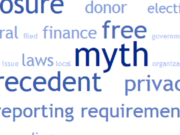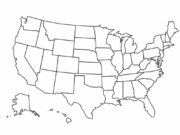Justice Kennedy wrote in the Citizens United majority opinion:
“The First Amendment does not permit laws that force speakers to retain a campaign finance attorney, conduct demographic marketing research, or seek declaratory rulings before discussing the most salient political issues of our day.”
Unfortunately, our laws and regulations are so complex that even having a campaign finance lawyer doesn’t guarantee staying on the right side of the law. Even the experts sometimes have trouble communicating the various nuances that comprise our complex political speech regulatory complex.
For example, last week the Campaign Legal Center (CLC), which favors even more complex disclosure and disclaimer rules, published a guide to federal rules for political advertising for TV and radio. Unfortunately, the campaign finance experts at CLC have a bit of trouble conveying, if not understanding, the rules in effect now.
CLC writes that “[Electioneering Communications (EC)] are usually funded by PACs, Super PACs, 501(c)(4) social welfare organizations, labor unions, corporations, trade associations or individuals.” They follow up by saying “Within 24 hours of the date of airing the EC, the person or organization making an EC that aggregates more than $10,000 must report to the FEC. An organization must report the name and address of each donor who, since the first day of the preceding calendar year, has donated in the aggregate $1,000 or more to the person making the disbursement.”
The problem is that under the law, the money spent by PACs and independent expenditure committees is exempt from electioneering communications disclosure requirements. In fact, FEC regulations specifically state: “Political committees that make communications described in 11 CFR 100.29(a) [“electioneering communications”] *must report such communications as expenditures or independent expenditures under 11 CFR 104.3 and 104.4, and not under this section.“* 11 CFR 104.20 (emphasis added).
This isn’t the only area in which CLC’s facts fall short. Under the Independent Expenditure column, they write “Ad sponsors may spend unlimited amounts from any non-foreign source.” However, federal contractors and national banks are specifically prohibited from funding independent expenditures. Additionally, traditional PACs are limited to accepting $5,000 contributions when making independent expenditures.
CLC also writes that “Before Citizens United, corporations and labor unions could not use treasury funds to pay for ECs.” But this is not so – under the 2007 Supreme Court decision in FEC v. Wisconsin Right to Life, corporations and unions could use treasury funds to pay for many ECs.
The Campaign Legal Center is chaired by Trevor Potter, a former FEC Chairman and head of the political law group at the elite Washington, D.C. firm of Caplin & Drysdale. If CLC’s experts are having trouble conveying political speech requirements, how can anyone planning on running political advertisements without a law school education stay out of legal trouble?
Requiring that political speakers must first have a legal education or obtain the services of an attorney before engaging in political speech is ridiculous. And even then, as CLC’s guide illustrates, the experts sometimes get it wrong.
It’s high time that Justice Kennedy’s sentiment that speakers should not need lawyers before engaging in political speech became a reality. Let’s see if we can make campaign finance law simpler than tax law.














